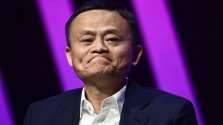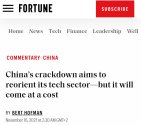Syria could allow Russia to keep its bases, new defense minister say
DAMASCUS, Syria — Syria is open to letting Russia keep its air and naval bases along the Mediterranean coast as long as any agreement with the Kremlin serves the country’s interests, Syrian Defense Minister Murhaf Abu Qasra said in an interview this week, underscoring the pragmatic approach taken by his government as it charts new alliances and reassesses old ones forged under the previous regime.
Russia’s attitude toward the new Syrian government has “improved significantly” since the fall of President Bashar al-Assad in December, and Damascus is weighing Moscow’s demands, Abu Qasra said, signaling a dramatic shift among the former militants who make up the government.
Until recently, rebel fighters like Abu Qasra, a key leader in Syria’s insurgency, were under constant bombardment by Russian warplanes. But “in politics, there are no permanent enemies,” he said of Moscow, once Assad’s most powerful ally. Asked if Russia would be allowed to maintain its naval port at Tartus and the Hmeimim air base in Latakia, Abu Qasra said: “If we get benefits for Syria out of this, yes.
In a wide-ranging interview Sunday in Damascus, Abu Qasra, 40, discussed Syria’s moves to build new military and political partnerships, its efforts to negotiate with U.S.-backed Kurdish forces, and its ambitious plans to bring the country’s plethora of armed factions, which mushroomed during the civil war, under the control of a single, unified command.
He spoke from his office in the Defense Ministry building, where the former regime’s seal has been ripped from the facade. Abu Qasra, a trained agricultural engineer, served as a first lieutenant in Assad’s military before he enlisted with the rebels, later joining Jabhat al-Nusra, a onetime offshoot of al-Qaeda.
He said he chose the group in 2013 because it fielded some of the best fighters, rather than for ideological reasons. Syria then was in the throes of full-blown civil war, after the Assad government launched a brutal crackdown on a largely peaceful uprising that started during the Arab Spring.
Now, Abu Qasra’s ministry is taking on the monumental task of rebuilding a fractured army in a country deeply scarred by more than a decade of bloodletting. Syria is also considering defense agreements with multiple countries, he said, and entering sensitive negotiations with both the United States and Turkey over the status of their established military bases here.
Russia was a major adversary during the war, intervening in 2015 to prop up Assad and his military while unleashing waves of devastating airstrikes on rebel-held regions.
But now, in addition to international legitimacy and support, the Kremlin could deliver something Syria’s new government wants badly: the former president, who fled by plane to Moscow as his rule suddenly collapsed in early December.
The defense minister, dressed in a blue suit without a tie, declined to directly confirm whether Syria’s interim president, Ahmed al-Sharaa, requested Assad’s extradition when he met with Russian officials late last month. But the issue of holding Assad accountable was raised during the meeting, he said.
“When Bashar al-Assad decided to go to Russia, he thought that it was impossible for us to reach an agreement” with the Russians, Abu Qasra said. “Perhaps relations with them will be restored in a way that serves Syria’s interests first and then their interests,” he said.
The Russian delegation, led by Deputy Foreign Minister Mikhail Bogdanov, did not comment on whether the two sides discussed Assad’s status. “We expressed gratitude for the fact that our citizens and facilities were not damaged as a result of the events of recent weeks,” Bogdanov said of the talks with Sharaa on Jan. 28, according to Russian state news agency Tass.
He said an agreement on Russia’s military presence “requires additional negotiations.”
“So far, nothing has changed,” Bogdanov said. “We agreed to continue more in-depth consultations.”
For now, Russia, which had numerous bases and outposts across Syria, has drawn its military personnel and assets back from all but the two installations in Tartus and Latakia. They are of deep strategic value to Russia — particularly the naval base, which gives Moscow a coveted warmwater port on the Mediterranean Sea.
Syria last month terminated a contract with a Russian company to operate the commercial side of the Tartus port, according to Syrian officials, but the future of Russia’s military footprint remains unclear.
The government in Damascus is also negotiating the status of U.S. and Turkish military bases in Syria, Abu Qasra said, and new military agreements with Ankara could involve a reduction or “redistribution” of Turkish troops in the country, he added.
The issue of whether the United States will maintain a military presence in the country’s northeast is “under negotiation,” he said.
U.S. troops first entered Syria in 2015 as part of an effort to battle the Islamic State militant group, backing the Kurdish-led Syrian Democratic Forces, which control swaths of territory on the border with Turkey and Iraq. About 2,000 U.S. troops remain both in the northeast and at a remote base in southern Syria.
“Everyone was waiting for Trump to come to power, and the issue needs some time between the U.S. administration and the new Syrian government,” Abu Qasra said of the negotiations.
On Sunday, Turkish Foreign Minister Hakan Fidan said that Turkey, Syria, Iraq and Jordan could come together to fight what remains of the Islamic State, allowing the United States to cut ties with the SDF. Turkey sees the predominantly Kurdish fighting force as a threat to its territory.
Since seizing power two months ago, Sharaa has set out to try to bring the Kurdish-controlled enclaves — which amount to about 25 percent of Syrian territory — back under state control.
Abu Qasra declined to comment on details of the negotiations, but he said he believes that the issue will be solved diplomatically. The government rejected the SDF’s offer to merge into the Defense Ministry as a unified bloc.
Sharaa’s goal is to ensure that the region comes under the authority of Damascus and that the government controls the prisons in the area, Abu Qasra said. “The military solution will cause bloodshed on both sides,” he said. “According to our assessment, the solution will be peaceful. We are not inclined toward a military solution.”
The SDF still runs prisons and camps for the displaced that include thousands of members of the Islamic State. Abu Qasra said that because of this, a controlled handover of power from U.S.-backed Kurdish forces was critical. But, he added, his military is ready for “any scenario.”
In an interview with the Economist last week, Sharaa said that Turkey was pushing for a “full-fledged war” in the northeast but that Syria had asked Ankara for space for negotiations.
In the weeks after Assad fell, U.S. officials said that they anticipated some level of integration between the SDF and the new government, including security and military forces, but that Syria’s Kurds would probably not end up with their own semiautonomous region. Damascus has ruled out any kind of self-rule for the area.
Abu Qasra said that about 100 of Syria’s armed factions have agreed to come under the umbrella of the Defense Ministry. There are several holdouts, he said, including Ahmad al-Awda, a rebel leader in the south who has resisted attempts to bring his unit under state control.
The groups that join the Defense Ministry’s command will not be allowed to stay in their current units, Abu Qasra said, and all factions will ultimately be dissolved.
As he spoke about the efforts to keep Syria stable, Abu Qasra pointed at the flecks of gray in his beard. “In a few months,” he said, “I will have a lot of white hair.”


